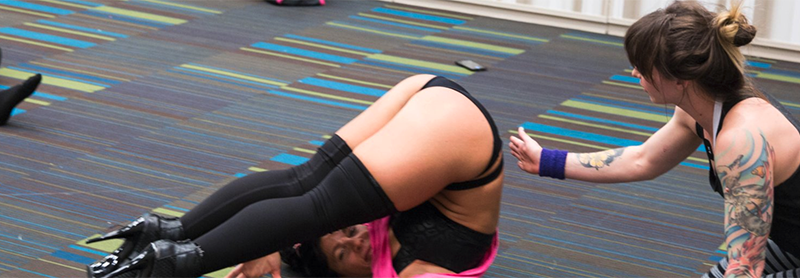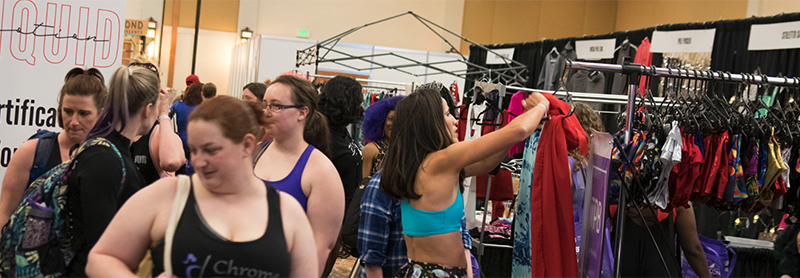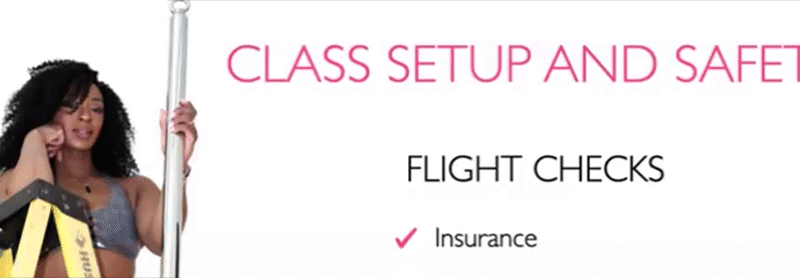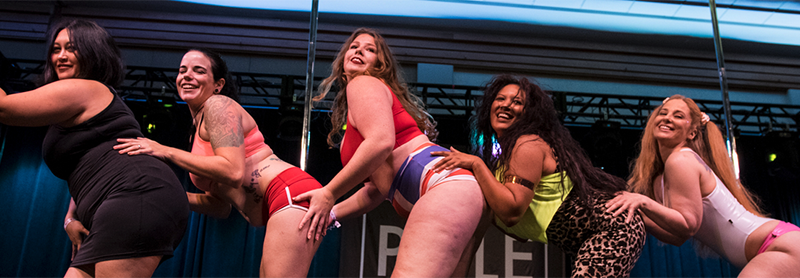A train-cation is a trip (usually away from home) where you focus for a specific…

Should I hire certified instructors?
Pole dancing is still a new industry, and there is no one gold standard for certifications or benchmark for hiring certified or non-certified pole instructors.
Newly certified instructors may have good intentions but have limited experience working with the myriad of ability levels typically found in a studio. Many teachers with years of experience don’t have certifications but instead learned things on the job (in a club, a home, or a studio environment) through trial and error.
If you’re looking to open your own studio, how do you make the best choice when hiring instructors?
Here are four things to consider:
1. Certifications
A certification provides your instructors with a minimal level of understanding about how to teach a specific thing. Getting a NASM or AFAA group fitness certification, for instance, teaches people how to teach group fitness. Getting a NASM or AFAA personal training certification teaches people how to create personal training programs. Pole-specific training, like XPERT, will give people both a group fitness and personal training perspective, which is appropriate in a pole setting using pole-specific moves and terms. (These certifications and more offer discounts for IPIA members).
2. On-the-job experience
People who learned pole in a club setting often have a lot of experience making moves work for them. They may know a variety of moves but may not have the anatomy knowledge to explain what’s happening or know how to translate moves to other people. Others who learned pole in a studio setting or by themselves at home likely have a greater appreciation of how to teach lots of different kinds of students even without a background in anatomy because of their breadth of experience gained during their years of experience teaching.
3. Beautiful movers aren’t always great teachers
Don’t presume that someone who is a beautiful mover is also a great teacher. They may understand how things move and feel in their own body but may have trouble explaining how to make someone else’s body move in the same way. There are plenty of beautiful movers who are also amazing teachers, but don’t confuse the ability to move with the ability to teach! Similarly, you might have an amazing teacher who hates performing or competing but has a knack for troubleshooting with students. Think of the adage “don’t judge a book by its cover.”
4. Respect your vibe
Some studios operate like an artists collective where the teachers make up their own lesson plans within some broad guidelines. Other studios have very specific methods, content, and instructions for how and what teachers can teach and even have studio-specific certifications. Whichever way works best for you, understand what you are asking people to do at your studio first so you can set clear expectations in your hiring process. Not every person will feel comfortable working in every situation.
Now that you’ve considered those four things, what is the most important thing to you?
Well, that depends! You’ve got to do some soul searching and understand what is best for your studio. Most studio owners find that having a mix of instructors works best for them and addresses the diverse needs of various student groups. Maybe they find some great teachers with tons of experience and provide them options to get certified later if that is important to them. Or they hire some certified instructors and pair them up with more experienced instructors to help shortcut gaining experience. Others might find beautiful movers with limited teaching experience and then provide them the tools to become a better teacher through formal or informal training.
For now—and this might change—being certified is not a requirement to teach pole. It can absolutely help provide an entry point to a career and confirm that people have a baseline of understanding. It may also not be affordable for all people, especially without a guarantee of employment for their investment. Consider all your options to find the best fit for your studio.



